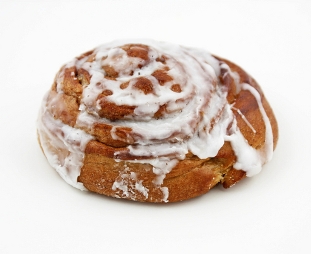Need some Baby Boomer
Memory Boosters?

It’s hard to imagine a life
without memory.
From the moment you were
born, your brain started to
file away huge amounts of
information.
Facts, names, faces, sounds,
smells, events and the emotions
that are tied to them.
Every second of your waking
life, you rely upon this ability of your brain to remember your
past, dictate the present and shape your future.
As human beings, our brains have the ability to retain, process and
recall information, personal experiences, skills or habits.
Trouble is it gets more difficult to remember as we get older.
In other words, our memory may not be as sharp as when you were
younger –
unless you take some active steps to keep it sharp!
Remember, remember, remember....
Basically, your brain is a collection of millions upon millions
of nerve cells, or neurons.
The ability to remember seems to involve the strengthening of,
or making of new neural connections within the Neocortex of your
brain. This ability to remember is thought to be processed and
stored away in different areas of the Cerebral Cortex of your
brain.
Scientists believe that 2 types of memory exist: short term (or
working) and long term.
So it seems that
if you want to improve your brain power,
the trick
is to move information from your short term into your long term
memory.
And that’s because the former seems to last only a few seconds:
whereas the latter lasts from a minute or so to weeks or even
years.
Turning Short-Term Into Long-Term memory
I want you to do something here. I want you to recall one of
your most vivid and exciting experiences.
It can be anything, so long as the experience is vivid
in your mind.
Is the experience enthralling, passionate, or thrilling?
Is the experience creating sparks in your mind?
Can you feel your spine tingling and the butterflies in your
stomach, as you play the experience in your mind over
and over?
One way to etch an experience more permanently in your brain
involves attaching strong emotions to the experience.
When emotion is attached, remembering the experience is more
powerful. And when emotions are involved, the Limbic System
comes into force. Your emotions cause Norepinephrine to be
released, which fixes the experience strongly in your brain.
You are then more likely to remember your experiences and be
able to recall them more vividly for a longer period of time.
So, any technique which incorporates emotion is good
for improving memory.

Another method for
making the ability
to remember more
permanent is to use
strong visual imagery.
The trick here is to
think of concrete visual
symbols to represent
abstract numbers and
letters. For example, a
sticky bun might be associated with the number “one”.
Then, you “place” all your symbols on a physical route, or a
journey you know well. When you need to recall the numbers or
words, just take a mental stroll through the location where you
placed your symbols and see each of the images.
This method of recall is known as the Journey Method and is the
basis for most of the mnemonic methods used by the Grandmasters
we love to admire.
Consolidation
Consolidation is the term Scientists use to describe the
movement of information from the short term, to long term memory.
Two major brain chemicals involved are Kinases and Phosphatases.
When Kinases in your brain are involved in chemical reactions,
the Consolidation process is boosted. But when Phosphatases in
your brain become involved, Consolidation is inhibited.
So, the secret is this……..
If you want to memorize something, review it before falling
asleep because most Consolidation happens during sleep.
Current research supports the idea that new information learned
last thing at night before sleeping, is retained much better
than new information learned first thing in the morning.
But learning new information on top of new information
encourages the build up of Phosphatases which hinder
Consolidation.
So, you must know the techniques you can practice to
Speed up the process of Consolidation,
Improve your memory and Boost your brain power!